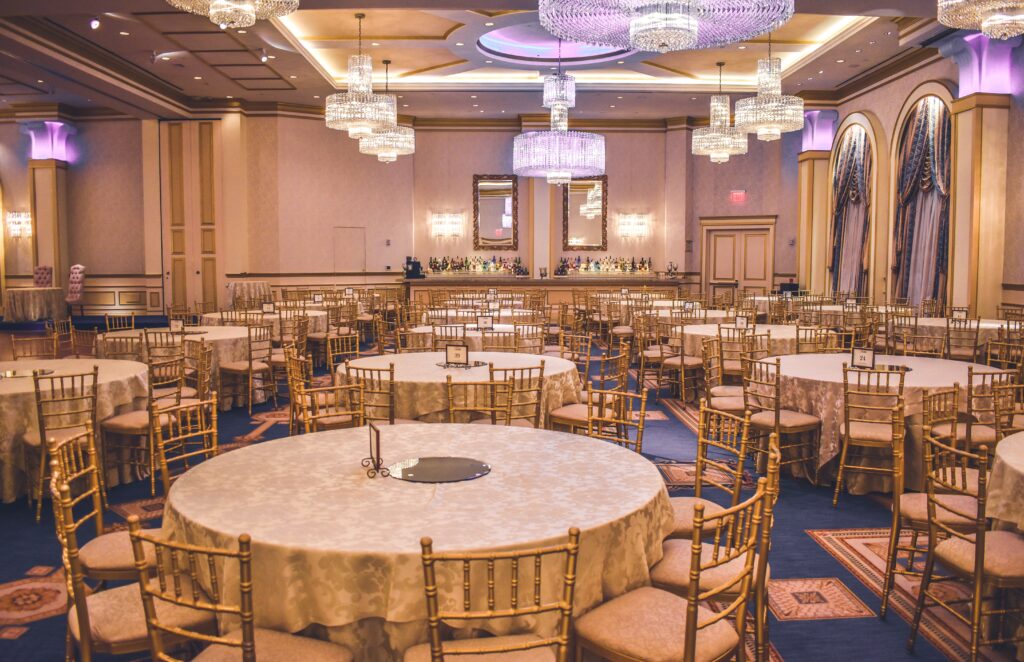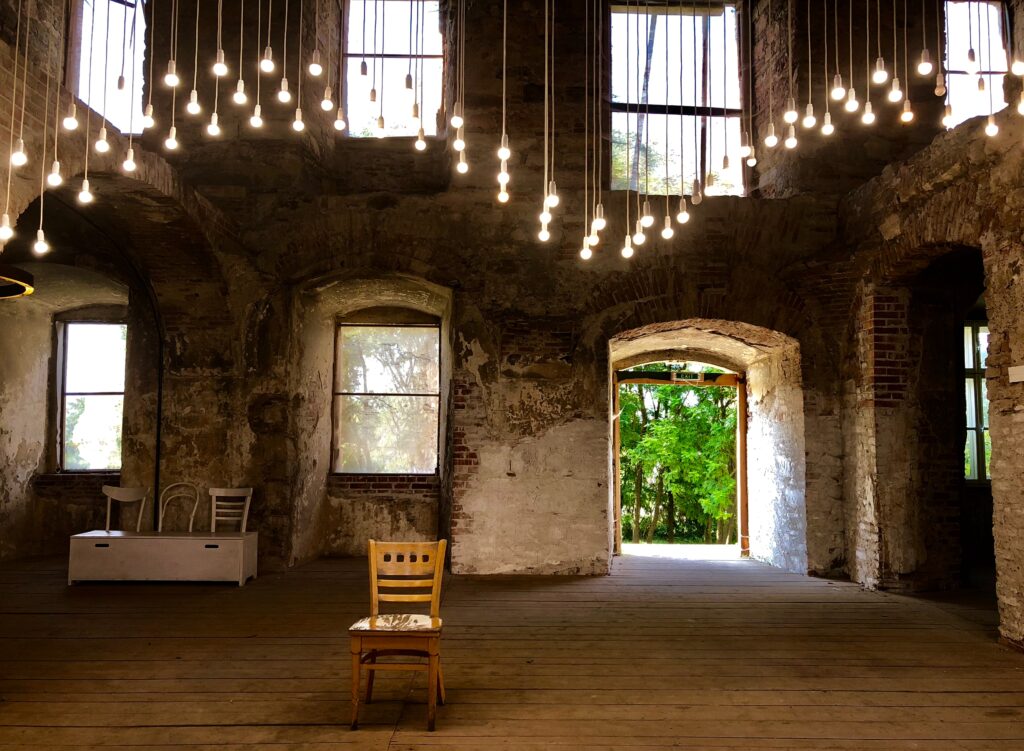Whether you’re planning your very first event or your hundredth, your venue is one of the most important aspects of your event. Your venue is where everything happens, so you want to ensure that the right location for your event will contribute to making your event a success.
Once we have a clear understanding regarding what feeling do we want to give to our attendees, we ought to look at our budget. Also, how much preparation time do we have until the event. It is possible to host a conference in almost any venue. However, we are often limited in what can actually be achieved with the resources we have.
That said, we should always look at the content plan and our speaker choices to see what type of requirements do we have regarding the seating arrangement and technology at the venue. In some cases, we might actually need to have a big door to get some big equipment in or even a roof that opens to enable the speaker to land with a parachute…
Some other things to consider include: How many stages do we have? How many people do we need to fit to the venue? Do we need some special rooms for VIPs, networking or kids? Do we have an EXPO? Or do we want to host a pre-/after party at the same venue? Each one of those giving us a direction regarding the type of venue that we need or can have.
Overall, there are four types of venues: Hotels, Halls with stages, Big venues for events & Improvised venues.
Hotel venue
It is very easy to organise a conference in the conference centre of any hotel. They have the equipment and furniture required, a lobby that could function as an expo area, a restaurant and, if needed, options for accommodation. We should lean towards choosing a hotel if there are no high expectations for the design and setup of the rooms. Hotels are also great if we have guests coming to the conference from abroad who will need accommodation. For guests from abroad, having the whole event in one building is more convenient than having to travel around town, trying to find different venues.
Organisers also need to pay close attention to the hotels pricing policies. Most hotels have a separate price for renting the rooms and extra services. This makes it very difficult to compare prices between hotels. Which is why we recommend comparing the total costs between them instead. Also keep in mind that after we have signed a contract, hotels will generally refuse to decrease any orders. so if we are unsure of how much we need to book, it is initially better to book less rooms, catering, and accommodation and increase any numbers later on.
Theatres, cinemas, concert halls
Theatres and concert halls are very well-suited for conferences that require a more formal setting. These places enable creative use of the stage and include a lot of built-in equipment. When considering rooms physical functionality, think whether it suits our event to have the chairs arranged in “theatre style” or would we require them to be rearranged. Since theatre and concert halls are generally not built to accommodate proper catering or expo areas, then we should also look into whether the hallways and the catering rooms meet the organiser’s expectations.

When it comes to cultural institutions, it can be very difficult to find a free day in their schedule for our conference. But we should not give up after the first rejection as sometimes it is possible to make changes in the concert programmes. Room rental in a theatre or a concert hall is on the expensive side, but generally the event organiser has the freedom to buy any extra services elsewhere, keeping the cost lower.
Museums and event centres
Museums and event centres are wonderful for organising very unique events and are especially suited for those who wish to put more effort into staging an event. Usually, the organiser will have to get most of the equipment and furnishings themselves. Upon request the owners of these venues can also offer their full services in acquiring everything for us instead.
Improvised venue
More creative clients will push their conference organisation partners to think further than hotels, theatres, and event centres. They may wish their guests to experience a day in an old factory, a remarkable historical building or set up a tent in a picturesque area in the countryside. The uniqueness of the venue and the freedom of imagination when designing the event like this are both big pluses. Though, it requires build up the technical solutions, decorations, furnishings and lighting from scratch. Additionally, we need to think about aspects that we would never need to worry about in other venues, such as how to set up bathrooms, will the roof endure any rain or how to heat up the space.


